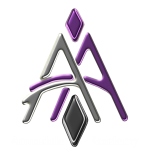Higher
Please note: Due to students starting the course with much less experience of the subject than they do English, it is highly important that all students choosing to take this course understand that there is more work involved than the equivalent English qualification.
Students will be expected to complete weekly homework tasks to a good standard, show commitment to the course and a strong work ethic. Failure to do so can lead to candidates being dropped to a lower level Media qualification.
Higher Media enables learners to analyse and create media content. Learners
think critically about the media and its role in everyday life, and develop an appreciation of media content in a cultural context and in the context of the media industry. Through analysing and creating media content, learners develop skills that enable them to engage more fully in society and in learning.
The Course provides learners with the opportunity to develop knowledge of media
contexts, roles and the key aspects of media literacy: categories, language, representation, narrative, audience and institution.
Learners encounter a wide range of different types of content in different media.
The course enables learners to communicate, be critical thinkers, develop cultural awareness, and be creative.
Purpose and aims of the Course
The main purpose of this Course is to analyse and create media content. The Course
enables learners to understand and develop their media literacy skills and appreciate the opportunities and challenges that occur within the media industry. The Course provides learners with opportunities to develop both knowledge of the media and the ability to create media content.
This Course offers learners opportunities to develop and extend a wide range of skills,including communication, independent learning, critical literacy, personal, interpersonal and team working, and creative thinking.
In particular, this Course aims to enable learners to develop:
- the ability to analyse and create media content, appropriate to purpose, audience and context
- knowledge and understanding of the key aspects of media literacy
- knowledge and understanding of the role of media within society
- the ability to plan and research when creating media content, as appropriate to purpose, audience and context
- the ability to self-evaluate
The Difference from National 5
Although the course structure is similar to National 5, there are several differences under the surface that make Higher a more challenging qualification.
- The level of detail that students are required to write in is increased. This includes both the level of detail concepts are explored in as well as the level of analysis and commentary required.
- The level of awareness students are required to have about cultural and social issues both current and historical is increased. Successful candidates regularly view a wide verity of media content and explore issues raised by the development and production of that content.
- Knowledge of complex film language use and film techniques are required. This also best developed by regular viewing and considering of complex media content in the candidate's own time.
- Candidates will be required to employ a higher level of independence and initiative. The Assignment for the course will require candidates to conduct filming and editing in their own time as well as potentially outside of school hours and the school grounds. Candidates must have the level of maturity required to conduct the filming safely.
Course Assessment
PLEASE NOTE: Due to changes in the course assessment being made by the SQA, this section is subject to change in the future. This section will be updated when this information becomes available.
Question paper - 50 marks (50% of the total mark)
The purpose of the question paper is to assess the candidate's ability to apply knowledge and understanding by analysing media content. The question paper gives candidates an opportunity to demonstrate the following skills,
knowledge and understanding:
- analysis of media content in context
- analysis of the role of media within society
Assignment - 50 marks (50% of the total mark)
There is no minimum or maximum word requirement, however students should expect to write an assignment in the region of 3000 - 3500 words.
In the assignment, candidates plan and develop media content in response to a negotiated brief. The assignment gives candidates an opportunity to demonstrate the following skills, knowledge and understanding of production techniques:
- consideration of possibilities and problem solving in planning and production processes
- application of knowledge and understanding of the relevant key aspects of media literacy
- evaluation of the strengths and/or weaknesses of the finished
content
Please Note: All coursework must be completed to be sent to the SQA by the deadline given by the class teacher. A failure to do so would disqualify the student from sitting the exam and gaining a qualification in the subject at this level.
Homework and Study Support
Homework will form an essential part of the course. It is not possible for any student to cover every element of the course purely in class time. Every student is required to perform various tasks at home as part of the course. This work will either have an direct or indirect impact on their final grade.
Links
SQA - Higher
Bitesize - GCSE Film - Bitesize does not currently have Higher Media page, but this does cover a lot of the key concepts used at Higher.




